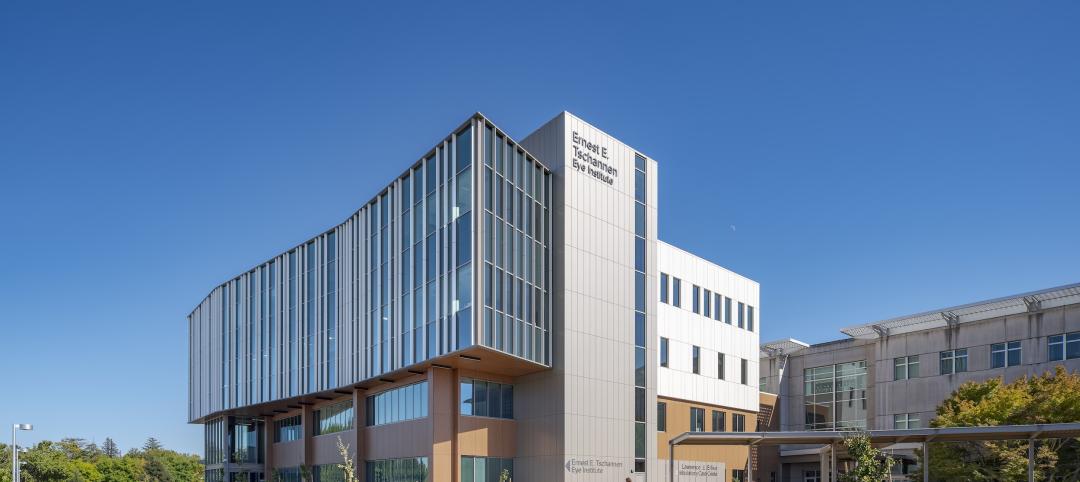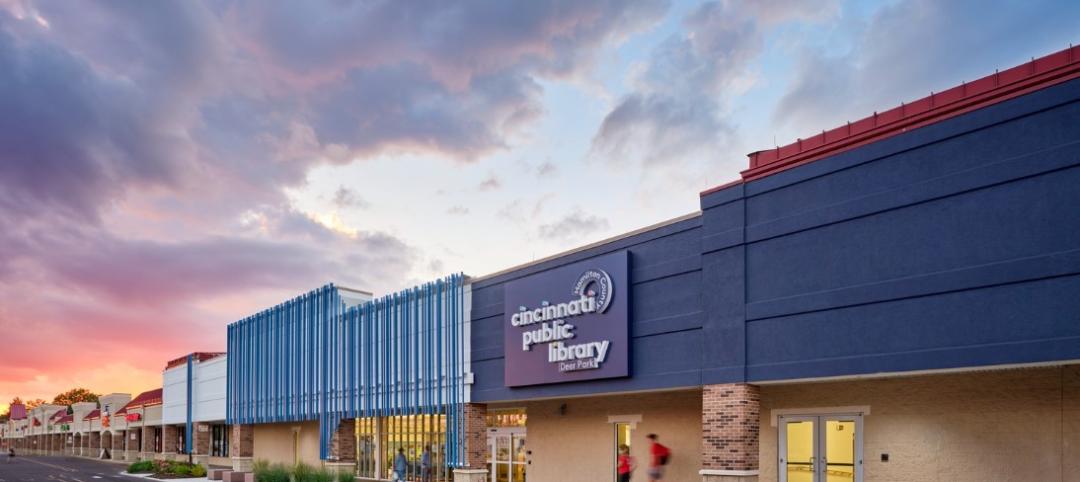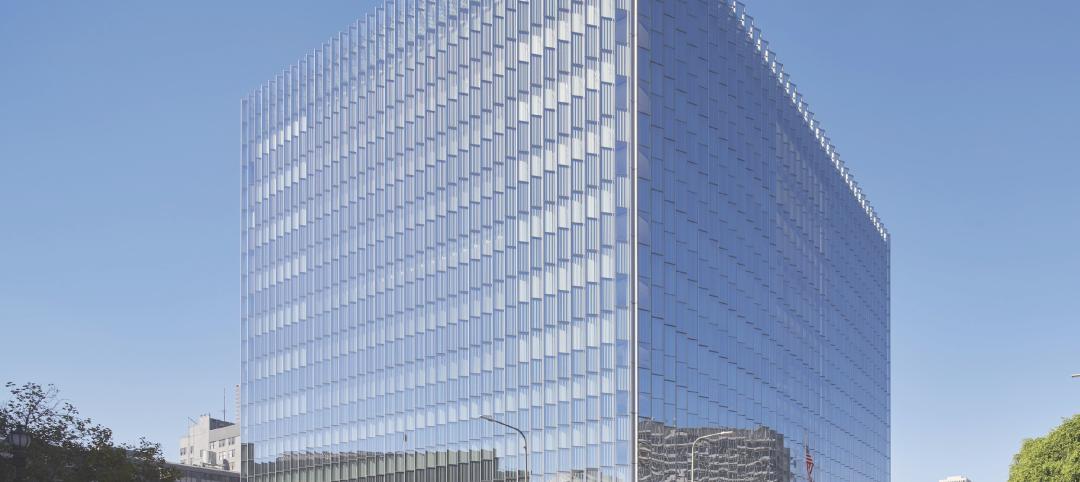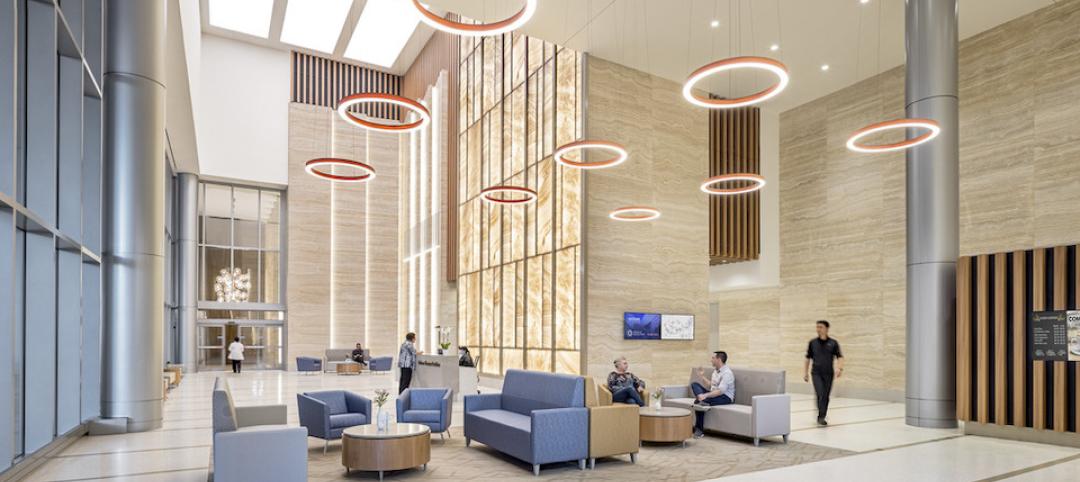The Affordable Housing Design Leadership Institute and Klyde Warren Park have been selected as the 2018 recipients of the Collaborative Achievement Award, which recognizes and encourages distinguished achievements of allied professionals, clients, organizations, architect teams, knowledge communities, and others who have had a beneficial influence on or advanced the architectural profession. The recipients will be honored at the AIA Conference on Architecture 2018 in New York City.
Affordable Housing Design Leadership Institute funded by Enterprise Community Partners
 Photo: Michael Walmsley
Photo: Michael Walmsley
For nearly a decade, the Affordable Housing Design Leadership Institute (AHDLI) funded by Enterprise Community Partners, has been a quiet but powerful force shaping social impact design. Modeled on the Mayors’ Institute on City Design, it assembles development and design leaders to focus on the ways in which architecture can produce more livable and sustainable housing for low- and middle-income people across the United States. During its short life, the institute has had a profound effect on the affordable housing ecosystem and has cultivated partnerships with more than 70 nonprofit and community groups in several communities.
Whether it’s improving four-unit historic buildings that serve a primarily refugee neighborhood in Buffalo, New York, or single-family homes for 300 Native American families in Arizona, the AHDLI process begins with a two-and-a-half-day charrette bolstered by a rigorous design curriculum. In that short time, the institute can radically alter the trajectory of development projects while equipping a new class of leaders with the tools to champion design excellence. Surveys have shown that as a result of AHDLI participation the vast majority of participants work more effectively with designers, address design much earlier in the development process, and ask more of their architect.
AHDLI, founded by Katie Swenson, Lawrence Scarpa and Maurice Cox, is the embodiment of what can happen when architects are fully engaged with leaders from outside the profession. Participants often become instant advocates, and the resulting innovative collaborations directly benefit people and communities in need.
 Photo: Dillon Diers Photography.
Photo: Dillon Diers Photography.
Klyde Warren Park healed a rift in Dallas where a freeway once divided two vital sections of the city, overcoming an obstacle that many residents feared was permanent. The park, completed in 2012, required significant funding and buy-in from the public and private sectors, but the efforts resulted in 5 acres of activated, world-class green space that has redefined the city and its self-image.
Designed by The Office of James Burnett, Klyde Warren Park is perched above Spur 366 and caps what was once a high-speed concrete canyon. A feat of engineering, the park’s deck was constructed with more than 300 concrete beams and slabs, a combination that creates trenches that play the role of planting boxes for 37 native plant species and more than 300 trees. LEED Gold–certified, the park relies on a number of practical sustainable strategies resulting in a 40 percent reduction in potable water use. Its trees intercept nearly 25,000 gallons of stormwater runoff and sequester approximately 18,500 pounds of carbon dioxide annually.
Recent studies have shown that the urban oasis has improved the quality of life for more than 90 percent of Dallasites, and has generated more than $1 billion in new development within a quarter-mile radius since the project was announced in 2009. Further bolstering the city’s Arts District, the park abuts the Renzo Piano–designed Nasher Sculpture Center and the Dallas Museum of Art. The entire district saw its economic impact triple, due in large part to a significant increase in street activity since Klyde Warren Park’s completion.
The $97 million project was funded through a combination of city bond, state highway, and federal stimulus funds as well as $55 million in private donations. The project is now managed by the Woodall Rodgers Park Foundation, a nonprofit organization that helped secure early funding for feasibility studies and maintained its momentum during the depths of the Great Recession.
The jury for the 2018 Collaborative Achievement Award includes: Rik Master, FAIA (Chair), USG Corporation; Patrick Burke, FAIA, Columbia University; Lindsey Graff, Assoc. AIA, Ayers Saint Gross Architects; Libby Haslam, AIA, GSBS Architects; and R. Steven Lewis, FAIA, TRC Energy Services.
Related Stories
Warehouses | Mar 29, 2023
Construction completed on Canada’s first multi-story distribution center
Construction was recently completed on Canada’s first major multi-story industrial project, a distribution center in Burnaby, British Columbia. The project provides infrastructure for last-mile delivery in a world where consumers have come to expect next-day and same-day delivery, according to Ware Malcomb, the project's architect of record.
AEC Innovators | Mar 27, 2023
Leading architecture, engineering firm HED appoints new co-CEOs
As children of immigrant families, Van Herle and Suarez will bring a diverse perspective into a historically underrepresented industry and advance the firm’s mission of creating a positive impact for clients, communities, and the world.
Healthcare Facilities | Mar 26, 2023
UC Davis Health opens new eye institute building for eye care, research, and training
UC Davis Health recently marked the opening of the new Ernest E. Tschannen Eye Institute Building and the expansion of the Ambulatory Care Center (ACC). Located in Sacramento, Calif., the Eye Center provides eye care, vision research, and training for specialists and investigators. With the new building, the Eye Center’s vision scientists can increase capacity for clinical trials by 50%.
Libraries | Mar 26, 2023
An abandoned T.J. Maxx is transformed into a new public library in Cincinnati
What was once an abandoned T.J. Maxx store in a shopping center is now a vibrant, inviting public library. The Cincinnati & Hamilton County Public Library (CHPL) has transformed the ghost store into the new Deer Park Library, designed by GBBN.
Multifamily Housing | Mar 24, 2023
Multifamily developers offering new car-free projects in car-centric cities
Cities in the South and Southwest have eased zoning rules with parking space mandates in recent years to allow developers to build new housing with less parking.
Multifamily Housing | Mar 24, 2023
Coastal multifamily developers, owners expect huge jump in insurance costs
In Texas and Florida, where Hurricane Ian caused $50 billion in damage last year, insurance costs are nearly 50% higher than in 2022.
Multifamily Housing | Mar 24, 2023
Average size of new apartments dropped sharply in 2022
The average size of new apartments in 2022 dropped sharply in 2022, as tracked by RentCafe. Across the U.S., the average new apartment size was 887 sf, down 30 sf from 2021, which was the largest year-over-year decrease.
Government Buildings | Mar 24, 2023
19 federal buildings named GSA Design Awards winners
After a six-year hiatus, the U.S. General Services Administration late last year resumed its esteemed GSA Design Awards program. In all, 19 federal building projects nationwide were honored with 2022 GSA Design Awards, eight with Honor Awards and 11 with Citations.
Transportation & Parking Facilities | Mar 23, 2023
Amsterdam debuts underwater bicycle parking facility that can accommodate over 4,000 bikes
In February, Amsterdam saw the opening of a new underwater bicycle parking facility. Located in the heart of the city—next to Amsterdam Central Station and under the river IJ (Amsterdam’s waterfront)—the facility, dubbed IJboulevard, has parking spots for over 4,000 bicycles, freeing up space on the street.
Healthcare Facilities | Mar 22, 2023
New Jersey’s new surgical tower features state’s first intraoperative MRI system
Hackensack (N.J.) University Medical Center recently opened its 530,000-sf Helena Theurer Pavilion, a nine-story surgical and intensive care tower designed by RSC Architects and Page. The county’s first hospital, Hackensack University Medical Center, a 781-bed nonprofit teaching and research hospital, was founded in 1888.
















